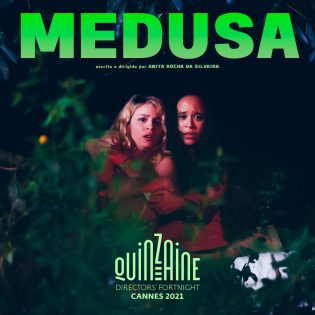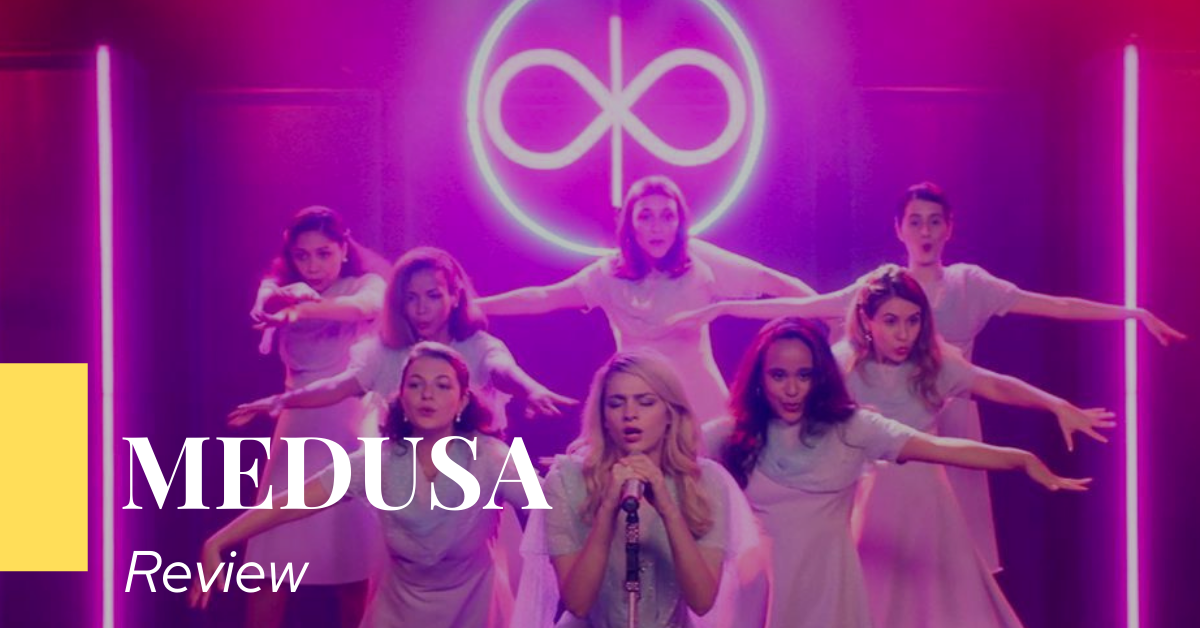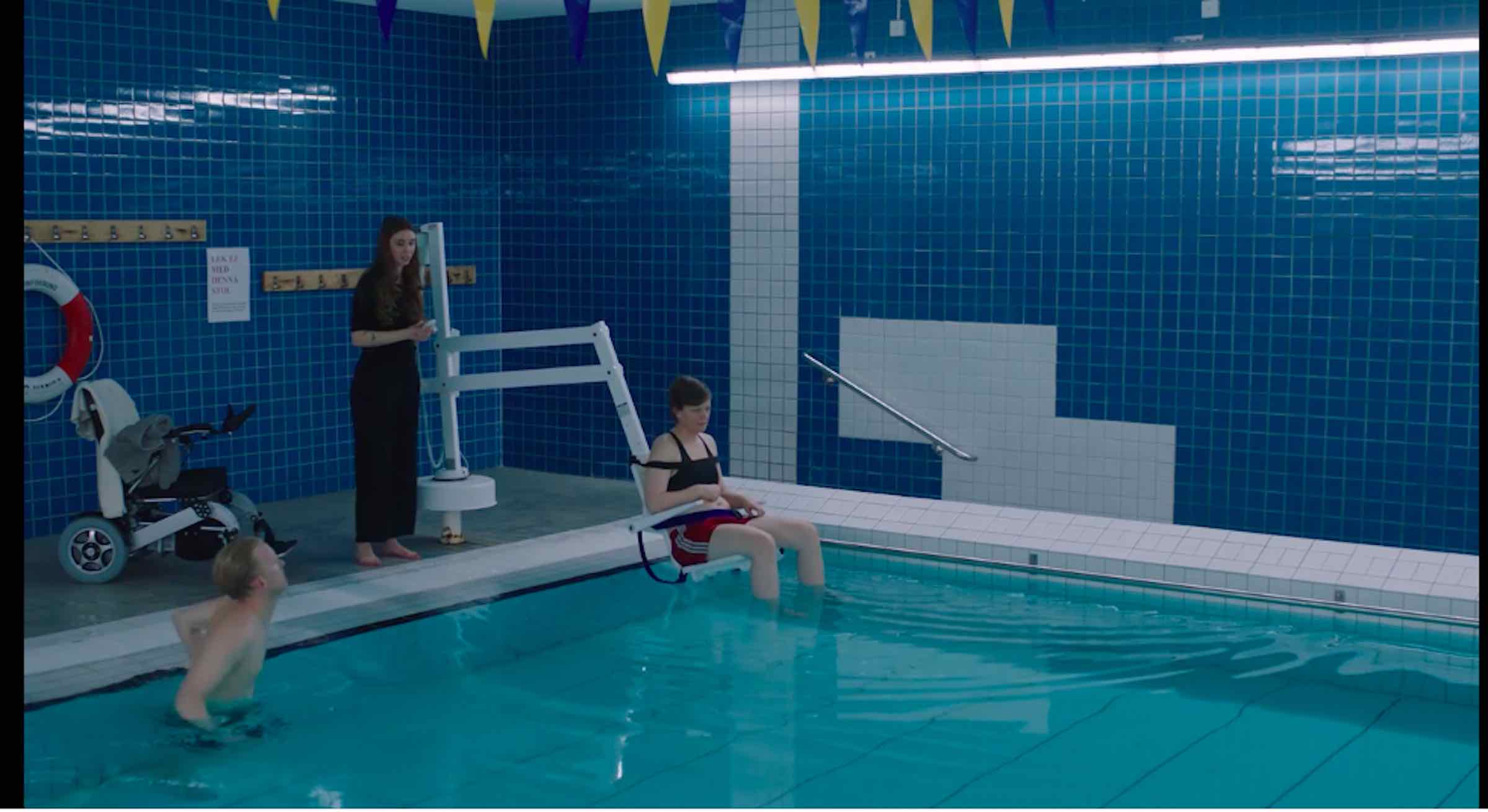
Medusa, second feature by Brazilian writer-director Anita Rocha de Silveria, won the Best International Feature at 29th Raindance Film Festival, after having already been awarded at Sitges and San Sebastián.
The film is set in an allegorical version of contemporary Brazil, dominated by a Christian dictatorship in which women must conform to the virtuous model imposed by religion and patriarchy, while men are concerned with ensuring that the dominant values are safeguarded. In this nightmarish setting, 21-years-old Mariana (Mari Oliveira) and her friends, organized in a female gang, carry out night raids in which they persecute and punish women that they’ve found guilty of sin. The young and good-looking Mari is committed to her mission and her beliefs, but everything starts to change when she’s stuck in the face during a nighttime attack on another woman, receiving a permanent scar: the beauty clinic where she works fires her because her face no longer conforms to the beauty standards they want to promote. Women, in fact, have to be respectful and chaste, but at the same time beautiful: they have to satisfy the male gaze, without conceding more than they should – a paradox that is far from being just dystopian – and this is perfectly shown also in some hilarious scenes, in which Mariana’s best friend and queen of the group, Michele (Lara Tremouroux) records in front of the camera the tutorial on “how to take the perfect Christian selfie”.
Mariana starts working in a new clinic, and she’s urged by Michele to go looking for a once-famous actress, whose face has been lynched and disfigured, and who is believed to be recovered in the same clinic. Maria finds her, but she experiences a comically-frightening episode when the woman wakes up screaming out loud and then falls back asleep.
Mari begins to experience a spiritual awakening after this episode, slow progress of change that starts with a feeling of alienation and then escalates into a silent and secret rebellion that manifests itself in a sexual relationship with her colleague and rave parties in the woods, in which the impeccable Michele is also involved. As the two friends begin their new secret life (with perhaps a superfluous hint of a possible homosexual relationship) their group of friends and guardians of decency panic as vice and sin are spread through the city.
Medusa revisits the Greek myth in a political key, with touches of aesthetic postmodernism and neon lights (thanks to the splendid cinematography). The Gorgon Medusa, who passed into myth as a monstrous snake-haired creature capable of petrifying anyone who met her gaze, was once a beautiful girl, transformed into a monster by the goddess Athena, jealous of Poseidon’s sexual attraction to her; and in modern-day Medusa it is still women who destroy other women, engulfed by a patriarchal society and moral prejudices, turning into monsters and oppressors, being oppressed themselves first. The liberation of women in this social and political context is only possible through self-awareness that makes them open their eyes to the reality in which they live, and once they wake up, there is only one possible response: screaming at the top of their lungs.
Medusa weaves a narrative somewhat reminiscent of The Handmaid’s Tale, portraying a society in which women are slaves to religion and patriarchy, all too often unaware of their lack of freedom, the clear manifestation of which is the meanness and lack of solidarity they show towards other women. The second part of the film shows the change of Mariana and Michele through dreamlike traits, which contribute to making the whole film a hybrid of dystopian drama and horror-like fairytale (but the film is far from being frightening). The women who realize they are being subjugated and oppressed fall into a trance, pass out and then wake up screaming at the top of their lungs, as if they are possessed – as the men say – or as if a zombie epidemic has spread and infected them. They don’t look like really scary creatures: they are women on the verge of a nervous breakdown, but Rocha da Silveira makes this portrayal at once funny and empowering, dramatic and ironic. Although it sometimes stretches things too far, Medusa is a creative, dreamlike, and thought-provoking work with an engaging visual narrative that deserves the accolades it has received and is well worth watching.
Written by Benedetta Mastronardi




